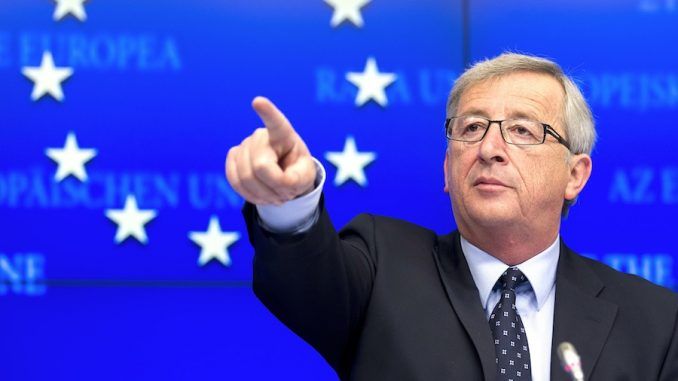
President of the European Commission, Jean-Claude Juncker, has criticised Britain as being anti-euro by suggesting that finance experts in London are standing by to “crush the Euro” if Greece leave the Eurozone.
The paranoid comments were given to students at the University of Leuven in Belgium where Juncker expressed concern that the centralised single Euro currency is under threat from the “Anglo-Saxon world” – i.e. bankers in London and Wall Street.
Rt.com reports:

BYPASS THE CENSORS
Sign up to get unfiltered news delivered straight to your inbox.
You can unsubscribe any time. By subscribing you agree to our Terms of Use
Juncker added Greece would not be forced to leave the currency as the financial hole it would leave would be too big.
“Grexit is not an option,” he said.
“The world wants to know where we’re going. They want to know that the monetary union is irreversible, it is a currency that is made to last.”
He added: “If we were to accept that Greece could leave the Eurozone, we would put ourselves at risk because some, notably in the Anglo-Saxon world, will try everything to break down the euro area piece by piece, bit by bit.”
Juncker’s comments have proved embarrassing to officials, as it suggests there is an active plot being prepared in UK banks to subvert the euro, and will doubtless lead to renewed criticism of the head of the European Commission.
Despite hopeful beginnings after Greece’s general election, forecasts for the country’s economy have been drastically cut by Brussels.
Greece has recently unveiled plans to tax cashpoint withdrawals in an attempt to raise cash and prevent money leaving the country.
Britain’s financial industry, however, has more on its plate than plotting to take down the Eurozone.
Overseas investors with links to the UK have withdrawn cash at an unprecedented rate during the past year amid fears the result of Thursday’s general election could prompt domestic instability.
According to the latest figures from CrossBorder Capital, more than $360 billion has been withdrawn over the past 15 months, with large sums from Russian investors vanishing in the wake of sanctions.
The withdrawal of investment has triggered concern about the strength of the pound overseas.
Mike Howell, chief executive of CrossBorder Capital, said the data “certainly showed money leaving sterling … It’s either UK investors wanting to get into foreign assets, or foreign investors wanting to get out of the UK. I think the data does reflect uncertainty around the election.
“Foreign capital does tend to be rather flighty. They can’t see why the election might be bullish for sterling. Rather the opposite.”

Who said the City of London wasn’t good for something? 🙂
Who said the City of London wasn’t good for something? 🙂